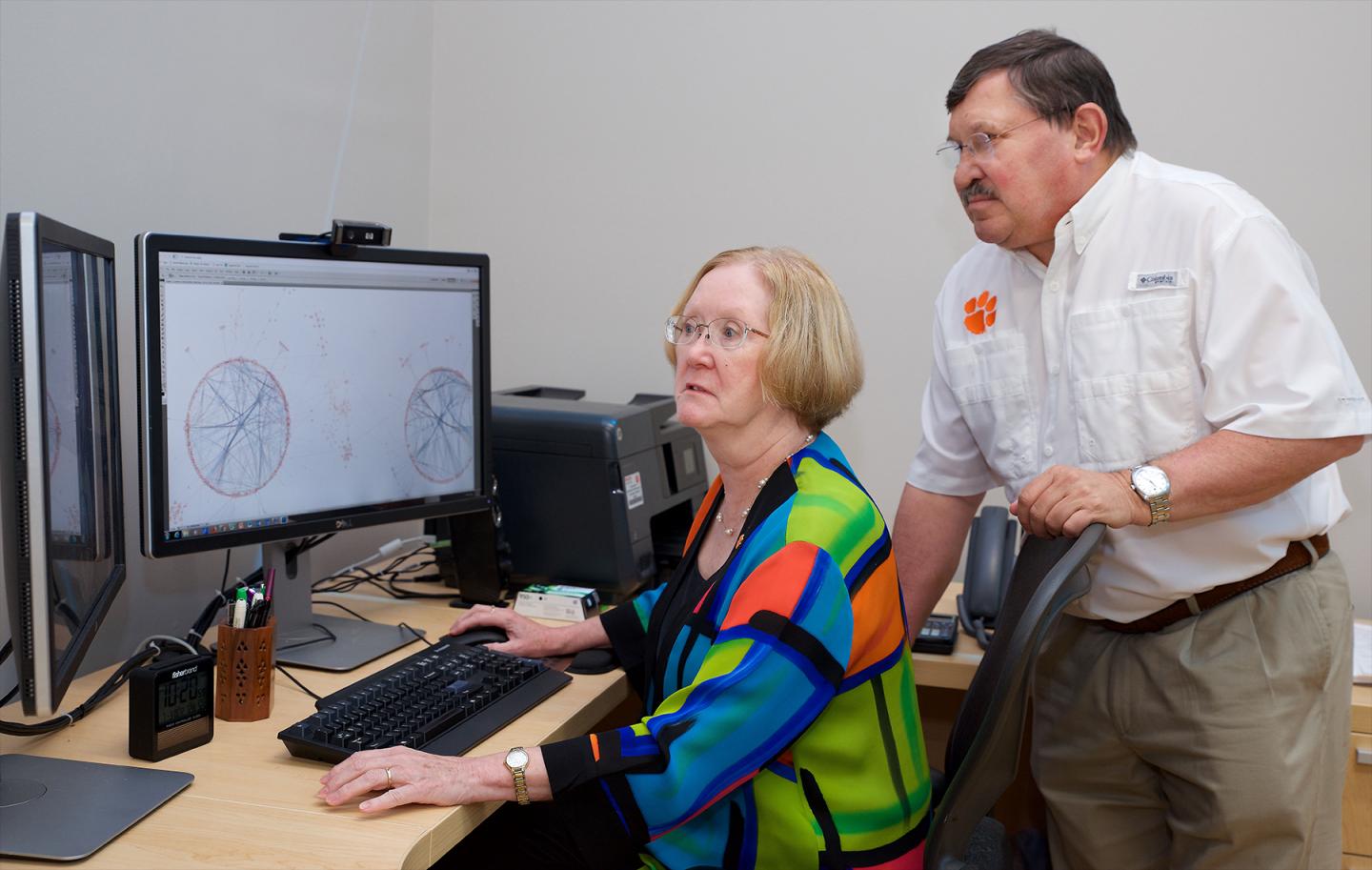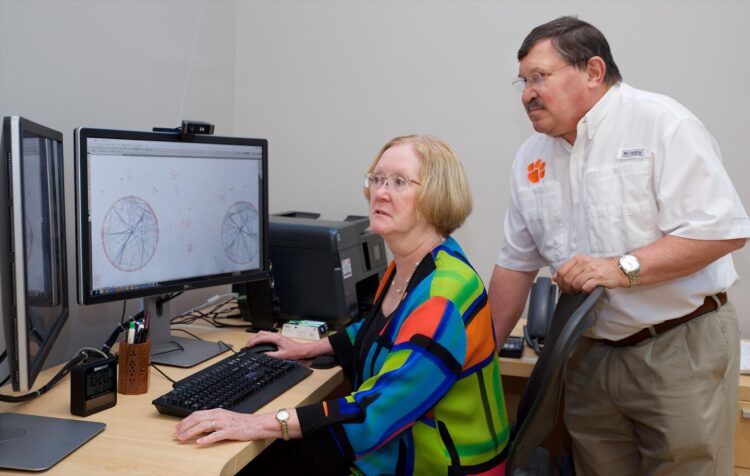
Credit: Pete Martin/Clemson College of Science
CLEMSON, South Carolina — Scientists believe about 25 percent of the differences in human life span is determined by genetics — with the rest determined by environmental and lifestyle factors. But they don’t yet know all the genes that contribute to a long life.
A study published March 5, 2020, in PLOS Biology quantified variation in life span in the fruit fly genome, providing valuable insights for preserving health in elderly humans — an ever-increasing segment of the population. The paper titled “Context-dependent genetic architecture of Drosophila life span” is the culmination of a decade of research by Clemson University geneticists Trudy Mackay and Robert Anholt.
It remains difficult to address the genetic basis for life span in humans, so researchers conduct their experiments with model systems. Mackay, the Self Family Endowed Chair of Human Genetics, is one of the world’s leading experts on the Drosophila melanogaster model (aka the common fruit fly), which is an excellent model for comparative analysis of human disease and aging. About 70 percent of the fruit fly genome has a human counterpart.
“The fly lines are representative of a natural population and they are very diverse, with more than two million variants captured in these lines,” said Mackay, who conducted the study using sequenced, inbred lines of the Drosophila melanogaster Genetic Reference Panel (DGRP).
In their experiment, Mackay and her team used the DGRP lines and an outbred population derived from these fly lines to examine variation in life span among male and female flies raised in three different temperature environments (18, 25 and 28 degrees Celsius).
In the process, they addressed which genes and variants are associated with increased life span and whether these genes and variants are the same in males and females and in different environments.
A variant, which is a change in a single DNA base of a person’s DNA code, is introduced into a population as a mutation. The laws of natural selection indicate that variants with favorable characteristics will survive and be passed down to subsequent generations, while those with deleterious effects will not.
After conducting quantitative genetic analysis of life span and the micro-environmental variance of life span in the DGRP line, the researchers discovered that the genetic architecture of life span is context dependent. The same genes and variants had different effects in males and females and also different effects based on the temperature in which they were grown.
According to Mackay, understanding variants is much more complex than what the scientific community has previously believed, and emphasized that the male and female differences were particularly surprising.
“If average life span of a variant was increased in females, it was decreased in males,” said Mackay, director of Clemson’s Center for Human Genetics in Greenwood, South Carolina. “This is an example of what is called antagonistic pleiotropy, meaning the same variant has opposite effects on different traits. In this case it’s the same trait, but its effects are opposite in males and females.”
This is significant, Mackay said, because it has been predicted in theory that variants with opposite different effects in males and females would be maintained in natural populations and cause variation in life span. However, experimental examples of such variants have not been observed previously.
Mackay and her team had another major finding in their study. Of all the genes they identified as being associated with increased life span, 1,008 of them overlapped with genes previously identified as such by other researchers who had selected fruit flies for increased life span.
“We were very pleased to find out that even though life span is a very complicated trait caused by variation on a large number of loci, which is true for most complex traits, the number of loci that are in common is a totally finite number. So, we can imagine going on to the next stage and investigating one gene at a time and in combination,” Mackay said.
###
Much of this research was conducted by Mackay and her team when she was a faculty member at North Carolina State University. She joined Clemson University in July 2018.
Mackay’s collaborators on this research include lead author Wen Huang, now a faculty member at Michigan State University; NCSU senior researcher Terry Campbell; NCSU research assistant professor Mary Anna Carbone; NCSU lab technician W. Elizabeth Jones; NCSU graduate student Desiree Unselt; and Robert Anholt, Clemson’s Provost Distinguished Professor of Genetics and Biochemistry.
This work was funded by the National Institutes of Health through grant numbers R01 AG043490 and R01 GM45146. The researchers are wholly responsible for the content of this study, into which the funders had no input.
Media Contact
Laura Schmitt
[email protected]
Original Source
https:/
Related Journal Article
http://dx.





